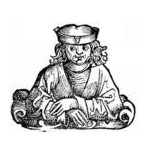
Tyranny of the Perverse Will
EVIL FOR EVIL'S SAKE
In his Confessions St. Augustine recounts an episode from his childhood in which he and a group of other boys try to outdo each other in performing dangerous and forbidden acts. Augustine and his companions steal pears from an orchard and throw them away, motivated neither by hunger nor by retaliation against the owner of the orchard. The deed itself is utterly senseless: “I stole something of which I had plenty myself, and much better than what I stole. I had no wish to enjoy what I tried to get by theft; all my enjoyment was in the theft itself and in the sin.” At a loss to justify his irrational behavior, Augustine comments, “I became evil for nothing, with no reason for wrongdoing except the wrongdoing itself.” This is an example of the perverse will that chooses evil for its own sake — not even an evil that has assumed the appearance of the good — a consequence of original sin in which man’s will rebels against his reason. “Could I enjoy what was forbidden for no other reason except that it was forbidden?” Augustine asks.
When driven by a perverse will, a person acts against his own best interests and leads a life of contradictions. Augustine confesses that as a youth he dreaded corporal punishment in school as the penalty for sloth, and yet he acknowledges that without the fear of pain he would not have studied diligently: “In this period of my boyhood I did not enjoy my lessons, and I hated being forced to do them…for I would never learn unless under compulsion.” On the one hand, Augustine loathes the infliction of physical punishment for laxness in his studies; on the other hand, he does not exert himself unless threatened by the rod.
In another scene from his childhood, Augustine recalls his disgust when his companions cheated at games, but he admits that he himself resorted to the same measures: “In these games too I often used to try to overcome my rivals by cheating, all the time overcome myself by the empty desire to be thought the best. But if I caught someone else cheating me, I simply could not abide it and would attack him in the most savage language for doing just what I had been doing to others.”
These examples illustrate that man does not easily follow the light of reason. He does not always act in pursuit of the good, or even the false good that he often mistakes for the real — what Boethius in The Consolation of Philosophy identifies as the great temptations or images of false happiness: money, honor, power, and pleasure. Man’s arbitrary, willful choices often act against his true happiness because, as Shakespeare famously put it in Troilus and Cressida, “reason panders will” — that is, instead of the will being subordinate and obedient to reason, reason functions as a slave at the command of the passions. To seek evil only for the sake of evil, or because it is forbidden, Augustine writes, is the mark of a perverse will with no self-control, a will “bent upon the lowest objects.”
You May Also Enjoy
The world is wolfish, devouring, full of evil, Silone knew — yet, good will and love are also constantly in evidence: God’s gift to us.
The truth of the Incarnation and the Mystical Body of Christ offers both hope for loved ones lost and an exemplar to be emulated in our relating to the dead.
"No man will be found in whose mind airy notions do not sometimes tyrannize and force him to hope or fear beyond the limits of sober probability."

